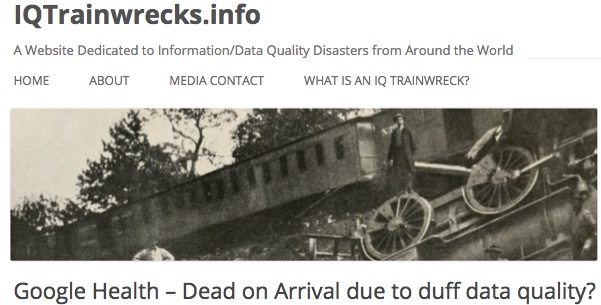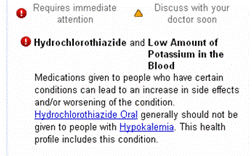
Fourth in a series of retrospective posts, reviewing the ten years since my cancer and how my shifting perspective has altered what I’ll be doing from now on.
I’m generally doing one post per year, but so much happened in 2009 that it’ll take several. In particular, this episode in the spring of 2009 had such unexpected impact that I’ve had to think a lot about what to say. Sorry for the delay, but as you’ll see, this is an example of the important question that arose here.
In May 2008 my hospital had announced that their Google Health interface was live:
… a patient, with their consent and control, can upload their records to Google Health in a few keystrokes. There is no need to manually enter this health data into Google’s personal health record, unlike earlier PHRs from Dr. Koop, HealthCentral and Revolution Health. …
Other hospitals were amazed that mine had been able to accomplish such a complex thing so fast. But I wasn’t interested in Google Health – back in January 2008 I’d blogged about it, pretty much saying “Who needs this?? And besides, who’d trust Google with their private medical data?? They caved to the Chinese government; what’s to say they won’t cave to others?”
But then a year later I had an epiphany: I’m putting my data in Google and HealthVault. In mid-March I poked the button, as I said at the end of my previous post:
… although I still didn’t trust Google, I decided I was more interested in seeding innovation by sending my medical data to Google Health, through my hospital’s interface. So I went home, and a few weeks later I went to my patient portal … and clicked the button to send my data to Google.
What came across was utter garbage. Figuring out why that happened caused an earthquake.
 By “utter garbage” I mean it said I still had problems from decades ago (acne???), conditions that were recorded very wrong (metastases to the spine? no; non-rheumatoid tricuspid valve disease?? no, never; and many more), and even conditions I’d never had. (Here’s a screen captures of a completely false warning it gave me. It thought I had low potassium, which had been true during my cancer treatment. My hospital sent it to Google with no date attached, and Google of course assume my hospital was right.)
By “utter garbage” I mean it said I still had problems from decades ago (acne???), conditions that were recorded very wrong (metastases to the spine? no; non-rheumatoid tricuspid valve disease?? no, never; and many more), and even conditions I’d never had. (Here’s a screen captures of a completely false warning it gave me. It thought I had low potassium, which had been true during my cancer treatment. My hospital sent it to Google with no date attached, and Google of course assume my hospital was right.)
To understand my reaction and response to what happened it’s essential to understand that at this point I knew nothing of the frailties of health I.T.:
I was naive, full of trust: these people had saved my life, so of course the information in their computers had to be super-sharp. So my first reaction was “Why didn’t my doctor tell me about these problems??”
But then, my first hint of disillusionment: I realized I had not had all these odd things, so I contacted the hospital’s tech support, and the only answer I got was “5,000 other people have done it and nobody else has complained.”
What kind of an answer is that?? They made no attempt to figure out what went wrong – just blew me off! What?? My doctors don’t act that way.
Lesson 1: Insurance records are not your clinical history.
Colleagues on the e-patient team (the friends of “Doc Tom” Ferguson) were the ones who figured out the real problem: the hospital hadn’t sent Google my actual clinical records, they’d sent my insurance billing history.
I’ve since learned that in America our health insurance billing is a giant rackety scam – billing codes are systematically inflated to get more money, using all kinds of schemes that are borderline legal and sometimes just plain fraud. But, oddly, my hospital’s IT department thought this so-called “claims data” would be a fine representation of my medical history, so they sent it to Google.
Additional reading, if you’re interested:
- The 2017 book An American Sickness is a deeply disturbing, detailed account of the many ways the financial side of American healthcare has become a sickening, out-of-control racket, even when our providers are working their tails off to do great care.
- In his 2015 book The Digital Doctor, Bob Wachter described claims data as “this waste product of administrative functions.” But that’s what they sent Google!
I was truly shocked that my hospital would send Google such insanity. I mean, I have a great PCP there, and my oncology team had pulled off a miracle. How could the people managing my data be so inept?? How could this be??
But at the time I didn’t know about the billing rackets; all I knew was that obviously this type of data was a complete failure at achieving the intended task: gathering my actual health information in a place where I could see it and share it with others. It would have been madness to send this mess to another app.
Remember, my whole intention here was to foster innovation by sharing data! So it sure as heck did matter if what ended up in Google was correct.
So, what to say in a blog post?
If I were a “food fight” blogger, I could easily have just said “Ha ha look at the stupid crap Google Health gave me. Google is an idiot.” But I’m not – my commitment since the beginning has been to improve healthcare by empowering and informing patients, and contributing whatever I can to people in the industry that saved my life.
Obviously there was a huge malfunction here, so I wanted to blog about it, but what to say that would help anything??
I spent weeks thinking about it; it was the first instance of a question that has driven all my messaging since. It’s the change agent’s pivotal question:
What could be said that would make any difference?
I decided that what I could say is to ask readers, “Do you know what’s in your record??” It was a play on the Capital One credit card commercials, “What’s in your wallet?”
At 10 pm March 31 I started outlining the post, and unexpectedly pulled an all-nighter, finishing at 4 a.m. The post went live at 9 a.m.


Leave a Reply